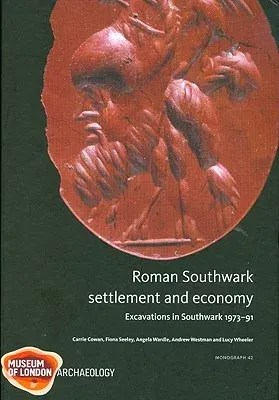Carrie Cowan
(Author)Roman Southwark - Settlement and EconomyHardcover, 1 August 2009

Qty
1
Turbo
Ships in 2 - 3 days
In Stock
Free Delivery
Cash on Delivery
15 Days
Free Returns
Secure Checkout

Part of Series
Mola Monograph
Part of Series
Mola Monographs
Print Length
280 pages
Language
English
Publisher
Mola (Museum of London Archaeology)
Date Published
1 Aug 2009
ISBN-10
1901992780
ISBN-13
9781901992786
Description
Product Details
Book Format:
Hardcover
Country of Origin:
GB
Date Published:
1 August 2009
Dimensions:
29.72 x
21.08 x
2.54 cm
ISBN-10:
1901992780
ISBN-13:
9781901992786
Language:
English
Location:
London, England
Pages:
280
Publisher:
Weight:
1406.14 gm